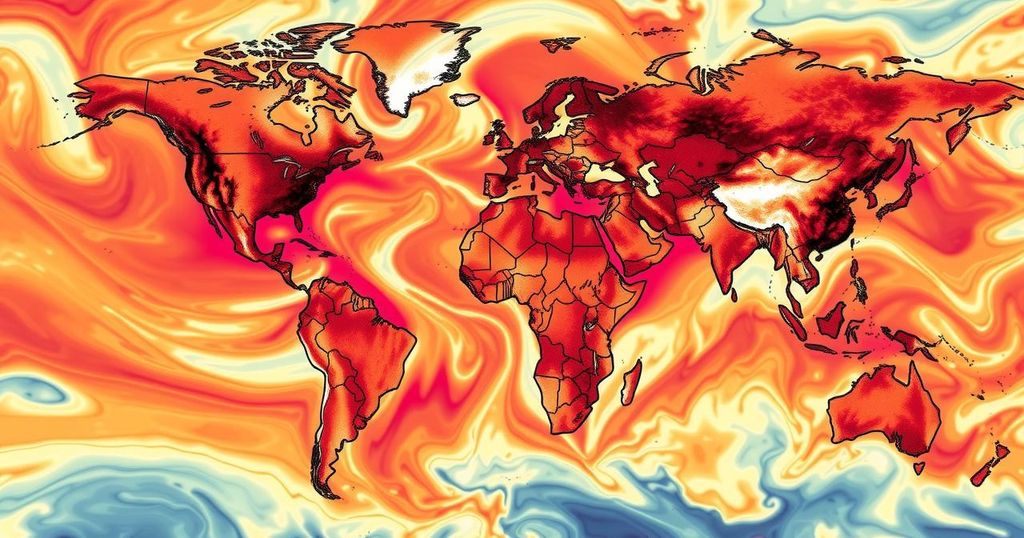Climate Change Results in 41 Extra Days of Extreme Heat in 2024
A 2024 report reveals that climate change has caused an average of 41 extra days of dangerous heat worldwide, impacting health and contributing to significant fatalities and displacements. Key recommendations include transitioning to renewable energy and enhancing support for vulnerable regions. The report highlights the worsening effects of extreme weather due to fossil fuel reliance and emphasizes the need for immediate global action to address these climate threats.
In 2024, human-induced climate change has resulted in an alarming addition of 41 days of extreme heat globally, as per a comprehensive report by the World Weather Attribution (WWA) and Climate Central. This report highlights a significant increase in dangerous weather events, leading to over 3,700 fatalities and the displacement of millions. The analysis identifies that extreme weather patterns are exacerbated by fossil fuel consumption, calling for immediate global action to mitigate these effects.
The report indicates that climate change intensified 26 out of the 29 extreme weather incidents assessed, which included catastrophic flooding, hurricanes, and droughts. Notably, Africa experienced devastating floods that claimed over 2,000 lives, showcasing the continent as a major victim of climate change despite contributing minimally to global emissions. Dr. Friederike Otto, lead author of the report, emphasizes that the current year is a clear indicator of the detrimental impacts of fossil fuel use.
Furthermore, Hurricane Helene struck six states in the United States, becoming the second-deadliest hurricane on the mainland due to climate-related factors. Concurrently, a severe drought in the Amazon, attributed to increased global temperatures, poses a severe risk to the forest’s ecological stability. In response, researchers have articulated four key recommendations aimed at enhancing climate resilience in 2025, including a shift towards renewable energy and improved support for developing nations.
The alarming data demonstrate that 2024 is poised to be the hottest year on record, urging worldwide cooperation and proactive measures to combat the escalating climate crisis. Experts stress that mitigation strategies must be implemented immediately to protect vulnerable populations and mitigate extreme weather events going forward.
The report addresses the critical impacts of climate change, highlighting an unprecedented rise in extreme heat days and the consequent health risks for millions globally. It outlines the urgent need for significant changes in global energy practices and highlights specific events, such as severe flooding and hurricanes, exacerbated by climate change. The authors urge a collective global response to mitigate the effects of climate change, particularly in vulnerable regions such as Africa.
In conclusion, the report from WWA and Climate Central underscores the severe impacts of climate change, evidenced by the additional 41 days of dangerous heat in 2024. With thousands of lives lost and millions displaced, it is imperative that nations prioritize the transition from fossil fuels to renewable energy and enhance preparedness for future extreme weather events. Failure to act will exacerbate the already critical public health threats posed by climate change. The urgency for international cooperation and specific strategic resolutions is paramount to combat this ongoing crisis.
Original Source: www.dynamitenews.com




Post Comment